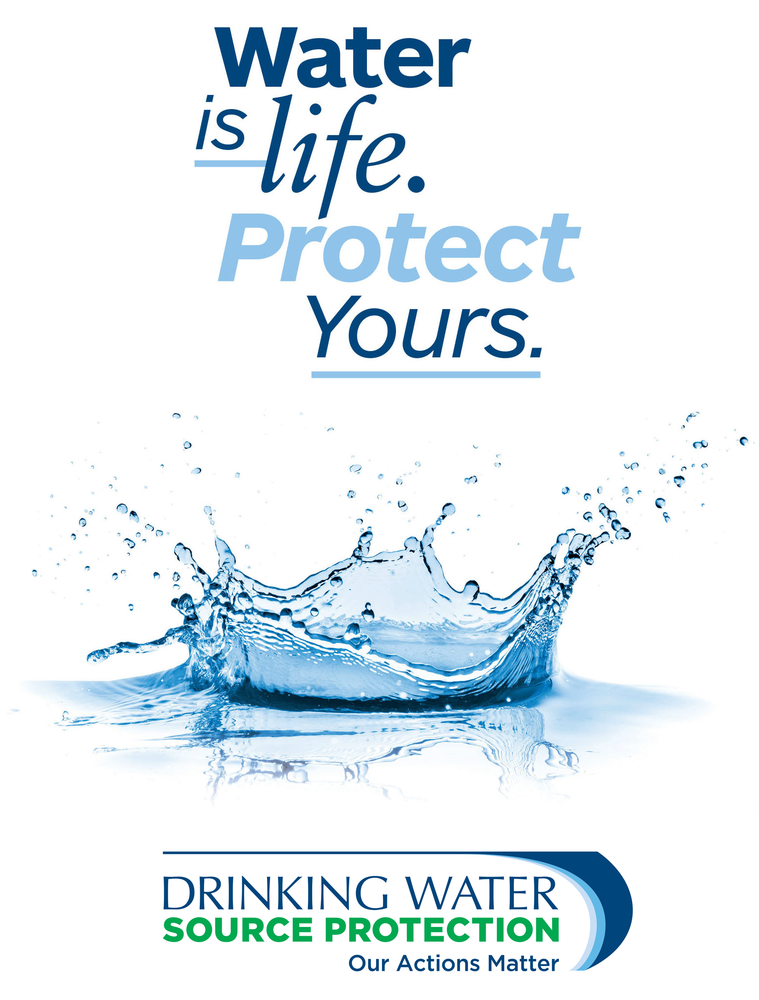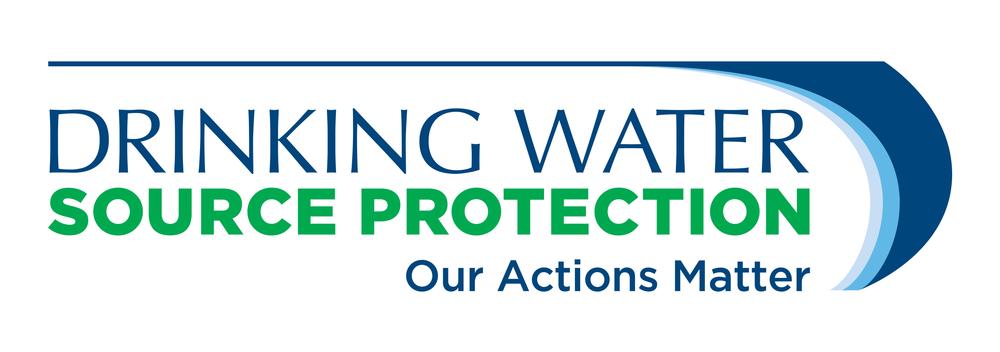What is Source Water?
Source water is untreated water from groundwater and surface water that supply municipal drinking water systems.
There are two types of source water:
Groundwater is an important water resource that can be drawn from a well. It is found underground in cracks and spaces in rock, soil and sand. It is stored in and moves under the Earth's surface called an aquifer. Pollutants can find their way through surface soils and travel underground and contaminate groundwater supplies.
Surface water is water that flows only on the surface of the earth like rivers, streams, and lakes. It is drawn into a municipal drinking water system through an intake pipe. Surface water can be easily contaminated by run-off from the land or even from the air through the Water Cycle.
Locally, in the St. Marys River watershed the City of Sault Ste. Marie gets 50% of its water from groundwater wells and 50% from a surface water intake from Lake Superior.
Why Do We Need To Protect Water?
Water, it’s the one resource every living thing on our planet depends on to live.
In today’s society water is critical for transportation, recreation, industry, agriculture, energy, domestic and personal use. Most importantly we depend on it as a source of safe clean drinking water.
Source Protection is the first step in a multi-barrier approach to protecting our sources of drinking water before they become contaminated. Conventional water treatment removes many potential contaminants that could result in illness and even death; however, preventing contamination is a much more effective way of ensuring clean drinking water and avoiding serious health issues. The majority of people affected most seriously by water-related illnesses are very young children and the elderly.
Source Protection is the first step in a multi-barrier approach to protecting our sources of drinking water before they become contaminated. Conventional water treatment removes many potential contaminants that could result in illness and even death; however, preventing contamination is a much more effective way of ensuring clean drinking water and avoiding serious health issues. The majority of people affected most seriously by water-related illnesses are very young children and the elderly.
You can learn more about source water protection by viewing this short video from Conservation Ontario:
Protecting Our Drinking Water
The provincial government made a commitment to the citizens of Ontario to develop strategies to safeguard municipal sources of drinking water by passing the Clean Water Act, 2006 into legislation. The Clean Water Act, 2006 requires municipalities and stakeholders to work together to develop watershed-based Source Protection Plans.
The Sault Ste. Marie Region Source Protection Committee with guidance and approval from the Ministry of the Environment, Conservation and Parks developed the Sault Ste. Marie Region Source Protection Plan.
.jpg)
Walkerton Inquiry
Ontario’s Clean Water Act, 2006 was created in response to the “Report of the Walkerton Inquiry" - by Justice Dennis R. O’Connor”, which was released in 2002. The inquiry was called in response to E. coli bacteria contamination of the municipal drinking water system in Walkerton, Ontario in May of 2000. This contamination was the cause of seven deaths and 2,300 residents becoming ill and suffering life-long health implications.
For more information about the Ministry of the Environment, Conservation and Parks Ontario's Source Protection program visit www.ontario.ca/page/source-protection.
You can also view the Ministry's interactive Source Protection Information Atlas.

This project has received funding support from the Government of Ontario.
Such support does not indicate endorsement by the Government of Ontario of the contents of this material.












